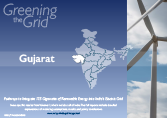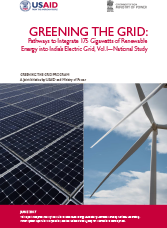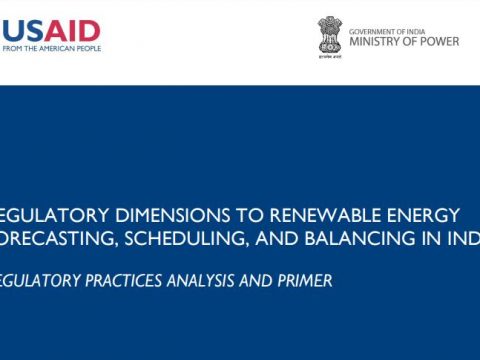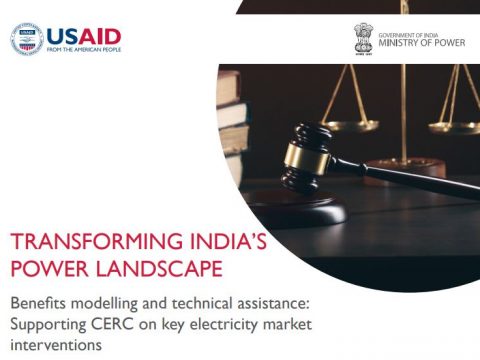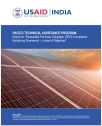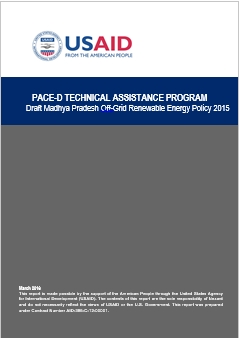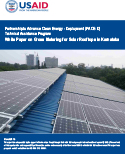Renewable Energy
February 14, 2022
This report proviides state-specific results for Tamil Nadu from Pathways to Integrate 175 Gigawatts of Renewable Energy into India’s Electric Grid Volume II.
February 14, 2022
This report proviides state-specific results for Gujarat from Pathways to Integrate 175 Gigawatts of Renewable Energy into India’s Electric Grid Volume II.
February 14, 2022
This report proviides state-specific results for Rajastha from Pathways to Integrate 175 Gigawatts of Renewable Energy into India’s Electric Grid Volume II.
February 14, 2022
This report proviides state-specific results for Karnataka from Pathways to Integrate 175 Gigawatts of Renewable Energy into India’s Electric Grid Volume II.
February 13, 2022
This report proviides state-specific results for Gujarat from Pathways to Integrate 175 Gigawatts of Renewable Energy into India’s Electric Grid Volume II.
February 13, 2022
This report proviides state-specific results for Andhra Pradesh from Pathways to Integrate 175 Gigawatts of Renewable Energy into India’s Electric Grid Volume II.
February 13, 2022
This study represents the impact of congestion on least-cost scheduling and dispatch, provides a deeper understanding of the relationship among renewable energy (RE) location, transmission, and system flexibility with regard to RE integration, compared to Vol. I - National Study.
February 13, 2022
This study analyzes operational challenges and cost saving opportunities using stateof-the-art power system planning tools to access pathways to Integrate 175 Gigawatts of Renewable Energy into India's Electric Grid.
January 28, 2022
This report lay out a comprehensive and efficient solar PV rooftop implementation support process that captures global and national best practices and learning.
January 26, 2022
The purpose of this report is to understand the regulatory dimensions to renewable energy forecasting, scheduling, and balancing in India’s power grid.
January 21, 2022
The Government of India is working to deploy unprecedented levels of renewable energy (RE) on its power grid. Getting a large quantum of RE on the gird will allow India to greatly reduce its economy’s carbon intensity and substantially strengthen the country’s energy security.
January 21, 2022
RPO compliance monitoring is crucial to ensure that RPO targets are met and at the same time non-compliance is brought to the regulators attention in a timely manner for necessary regulatory action.
January 21, 2022
This is a draft policy framework for discussion with the Government of Madhya Pradesh. It has been developed based on the analysis carried out by the USAID PACE-D TA Program and limited stakeholder engagement.
January 21, 2022
This White Paper, developed by the PACE-D TA Program, focuses on the evolution of solar rooftops in India and builds a case for Gross Metering FIT in Karnataka that will help accelerate its solar rooftop market.
January 21, 2022
Quarterly newsletter on the U.S.-India Partnership to Advance Clean Energy (PACE) providing highlights of the key activities for the period September – December 2015.





